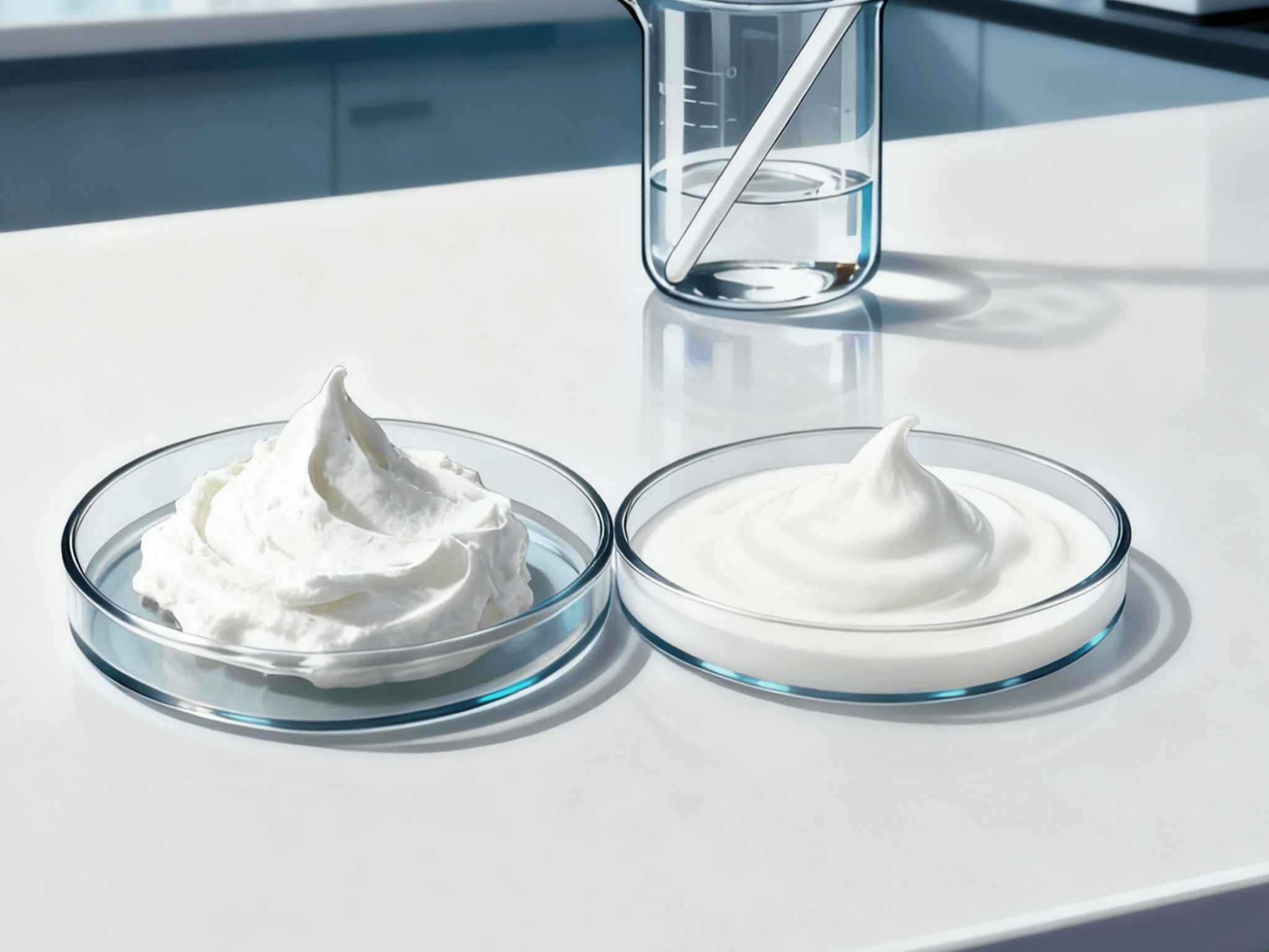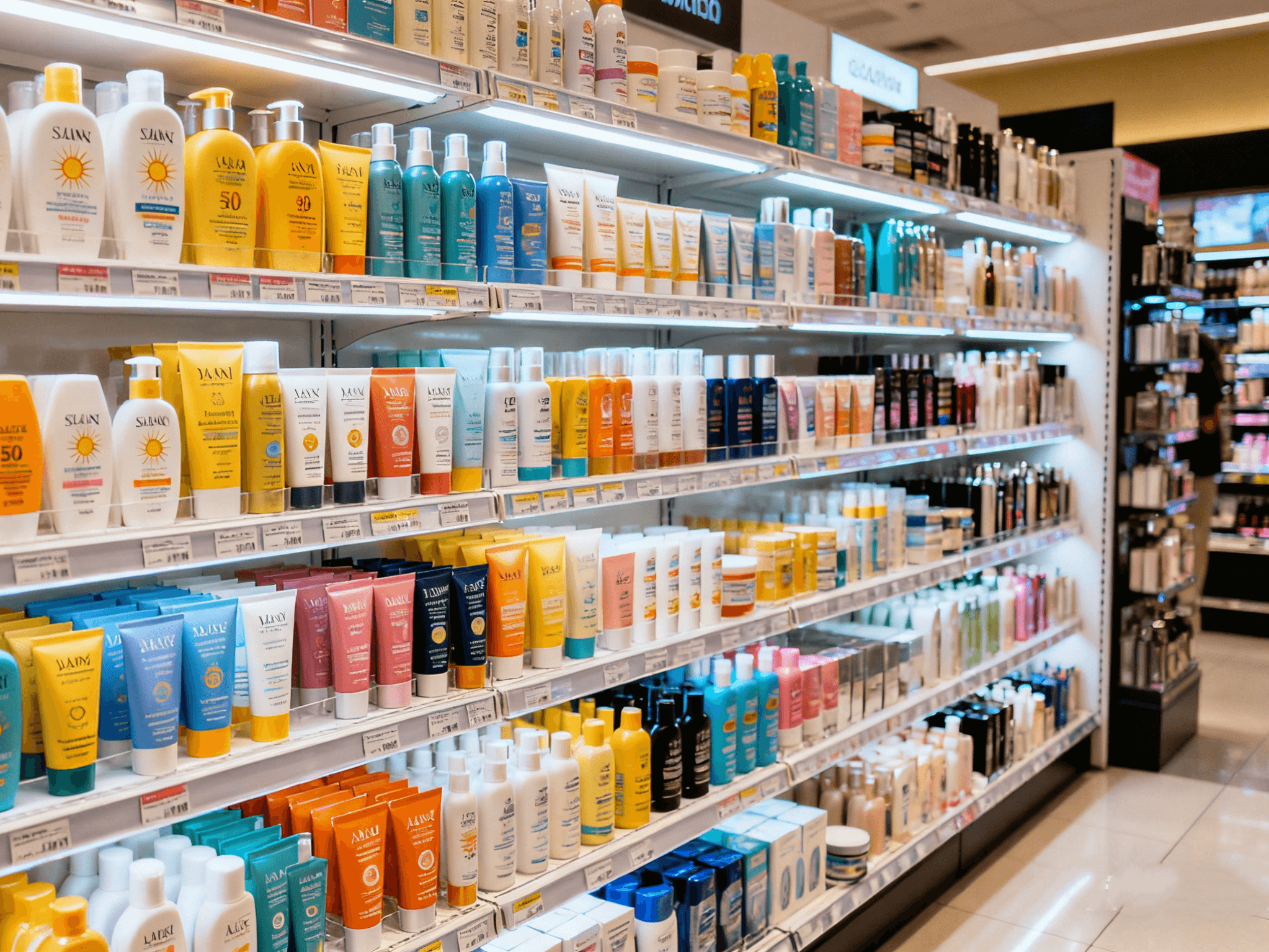Is hyaluronic acid Good for Sunscreen Formulations?
Release time:
2025-09-18
When you think about sunscreen, do you only think of "preventing sunburn and tanning"? Actually, people’s requirements for sunscreen have long been more than that these days. When the market demand for combining sun protection and moisturizing emerged, sodium hyaluronate/hyaluronic acid became the preferred ingredient.
First, let’s figure out: What exactly is hyaluronic acid?
You can think of it as a "natural moisture-storing sponge" for your skin. It can hold 1000 times its own weight in moisture on your skin—that’s why you’ll find it in many skincare products (like serums and face masks).
Why Add hyaluronic acid to Sunscreen?
Traditional sunscreens protect your skin from UV rays, but they sometimes feel heavy or leave skin dry. Adding hyaluronic acid changes that. Here’s why it works so well in sunscreen formulations:
Hydrating sunscreen benefit: hyaluronic acid pulls in water and locks in moisture, keeping skin soft and comfortable all day.
Lightweight texture: It helps sunscreen spread easily without feeling sticky or leaving a white cast, making it perfect for daily use.
Stronger skin barrier: Well-hydrated skin is more resilient and less likely to get irritated by sun exposure or pollution.
Moisturizer + sunscreen in one: With hyaluronic acid, sunscreen doubles as a daily moisturizer, making skincare simple and effective.

"Sunscreen + Skincare" 2-in-1 is trending now
Brands all over the world (both domestic and international) are making these "multi-functional sunscreens"—they block UV rays while also hydrating and soothing the skin. If you go to a supermarket or shop online, you’ll often see phrases like "hydrating sunscreen" or "sunscreen with hyaluronic acid" directly on the sunscreen packaging. Brands highlight this because people really love this kind of product.
Do all sunscreens need to have hyaluronic acid?
Not necessarily. The core function of sunscreen is always to "block UV rays"—as long as it does that well, it’s a good sunscreen. But if you have dry or sensitive skin, or if you find regular sunscreens uncomfortable to wear, then choosing a sunscreen with hyaluronic acid will be a better option for you.
Focusfreda looks forward to providing high-quality sodium hyaluronate/hyaluronic acid raw materials to more innovative skincare brands to support their long-term development.

BLOGS
Knee osteoarthritis (KOA) is a common chronic joint disease with an increasing prevalence among older adults, severely impacting quality of life. Sodium hyaluronate (SH), as a core component of synovial fluid, is a key drug in KOA treatment. However, different molecular weights of SH exhibit significant differences in efficacy and mechanism of action, directly affecting treatment options. This article focuses on interpreting its differentiating effects to provide a reference for clinical application. [Reference Interpretation: Figure 1]
Is Hyaluronic Acid Ingredient Good for Acne? Safe Hydration for Breakout-Prone Skin
Learn whether hyaluronic acid is good for acne-prone skin, if it clogs pores, how it supports the skin barrier, and how to pair it with retinoids, niacinamide, and BHA—plus routine tips and FAQs.
Will Sodium Hyaluronate Clog Pores?
Will sodium hyaluronate clog pores? Learn why it’s usually non-comedogenic, what causes breakouts in HA products, and how acne-prone skin can use it correctly—plus why high-quality manufacturing standards matter.
Sodium Hyaluronate in Lipstick: Hydration Hero or Marketing Hype?
Hyaluronic Acid Lipstick: hydration hero or hype? Learn why water-soluble sodium hyaluronate struggles in waxy lipsticks—and how oil-dispersible HA can actually help.
Can Low Molecular Weight Sodium Hyaluronate Really Penetrate the Skin?
Can low molecular weight sodium hyaluronate penetrate the skin? This science-based guide explains how molecular weight affects skin interaction, hydration, and epidermal penetration.
What is Sodium Hyaluronate Crosspolymer?
Discover what Sodium Hyaluronate Crosspolymer is and why skincare brands are increasingly using this advanced form of hyaluronic acid. Learn how it’s made, how it compares with regular HA, its long-lasting moisturizing benefits, and how to choose a reliable manufacturer like Focusfreda for high-quality Sodium Hyaluronate Crosspolymer.








